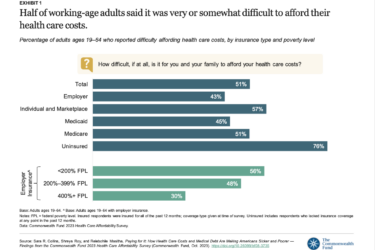Canceled health insurance policies are in the news for good reason. When health plans cancel policies, consumers immediately believe they will need to pay more for a different policy. And, it’s often true that new policies cost more. So, that’s a story.
And President Obama is on record as having said “If you like your doctor, you can keep your doctor, and if you like your health insurance, you can keep your health insurance.” Turns out those words were inaccurate and Americans are upset about that. That’s a story too.
But there’s a story behind these stories: Many of the health insurance policies being canceled now do not meet the minimum requirements all policies must meet under the Affordable Care Act. Plans need to offer essential benefits in 10 broad categories and those benefits are set in each state. Also, all plans need to protect consumers against big health insurance bills.
Many of the plans being canceled now were offered before the ACA became law in 2010 and failed to offer adequate protections against big medical bills, as Reed Abelson wrote in The New York Times in 2009, “Insured but Bankrupted by Health Crises.” In June, Dan Mangan reported on this issue for CNBC, writing that limited coverage policies do not prevent the insured from running up high health care costs and then going bankrupt.
Consumers find limited coverage policies to be enticing because the premiums are often low. But if a consumer with a limited coverage policy needed medical care, he or she likely would have discovered the inadequacies of the policy, as Julie Appleby reported for Kaiser Health News last week.
Michael Hiltzik, writing in The Los Angeles Times, explained the issue well. He reported that in March 2012, Consumer Reports said health plans that do not meet the minimum standards under the ACA may be worse than no coverage at all. The Consumer Reports article classified some of these policies as “junk insurance.”
Also covering this issue thoroughly was The New York Times, which published a useful graphic representation showing that those whose policies may be canceled are a portion of the 10 million to 15 million Americans who purchase health insurance coverage on the individual market.
Writing for The Washington Post’s WonkBlog, Sarah Kliff estimated that the number of Americans who have or will get cancellation notices from their insurers could be 7 million to 10 million.
That means there’s the potential for many consumers to be forced to pay more for more comprehensive coverage and many may be unhappy about both the increased costs and more benefits under their new plans. But, as Kliff points out, individuals can buy new policies on the health insurance marketplaces and many may be eligible for tax subsidies that will help keep costs down.











